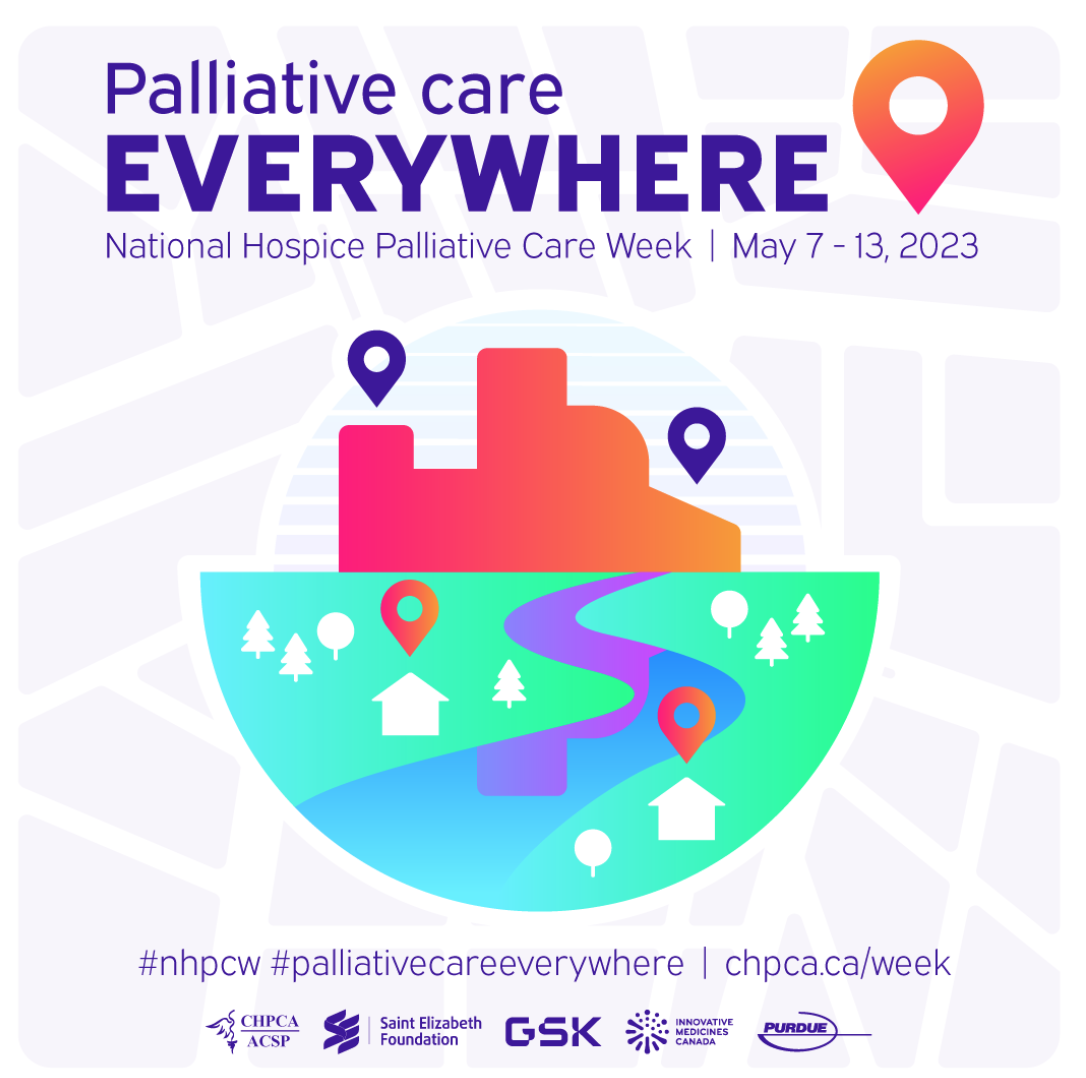The first full week of May marks National Hospice Palliative Care Week in Canada. Palliative care is person-centered care. That means, in part, that wherever there is a person with a life-limiting illness, palliative care can be provided. If someone is facing significant health-related suffering because of a life-limiting illness, palliative care can help regardless of the setting of care, regardless of a person’s illness or prognosis, regardless of their postal code. Palliative care is an approach that aims to alleviate the suffering of people facing a life-limiting illness. It can be provided in any setting – from hospice, to long-term care, to hospital, to home.
While access to palliative care has improved over recent years, the latest data shows that only 58% of Canadians who died in 2021-2022 received palliative care, usually in a hospital. The “Palliative Care Everywhere” campaign highlights that there are no limits on where a palliative approach to care can be provided and reminds us that wherever people face life-limiting illnesses, end-of-life, and grief, there must also be a place for palliative care.
"This week, we celebrate the indispensable and compassionate care provided by health care workers, volunteers, unpaid caregivers and many others across Canada. The impact of palliative care on a person’s quality of life and on their family is profoundly meaningful, and every person with a life-limiting illness deserves to receive this level of care," said Laurel Gillespie, CEO of CHPCA. “Sadly, less than 60% of Canadians who died last year received care from the discipline that specializes, in part, in caring for the dying. It is time for everyone in Canada to come together to build a future where ‘Palliative Care Everywhere’ is true in every postal code.” Source: CHPCA
